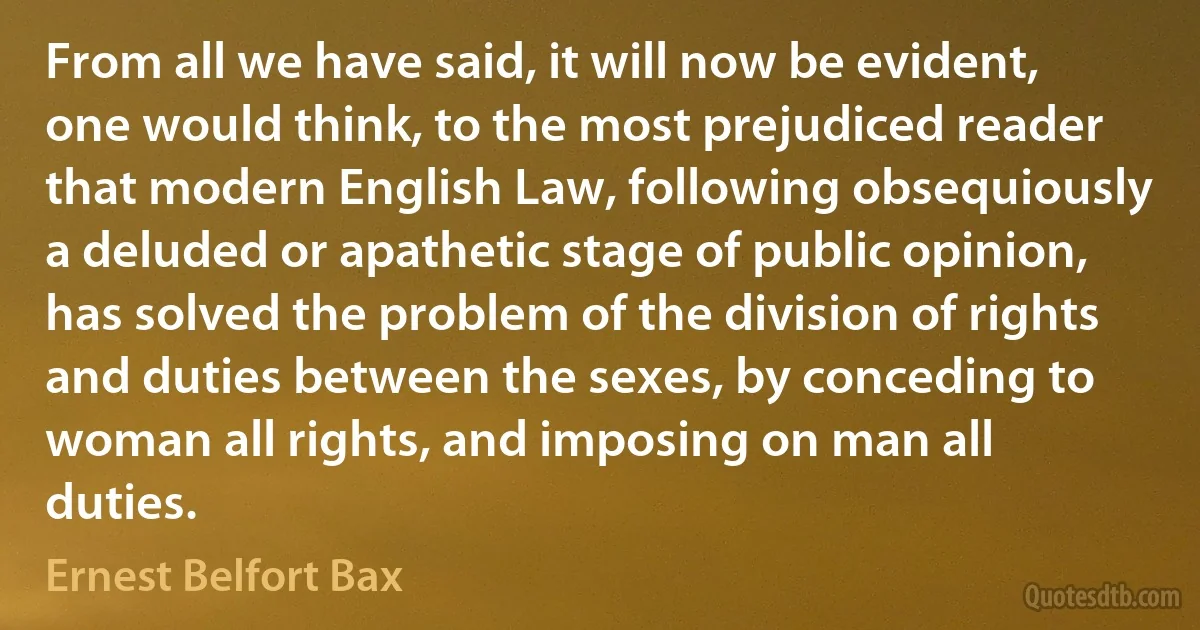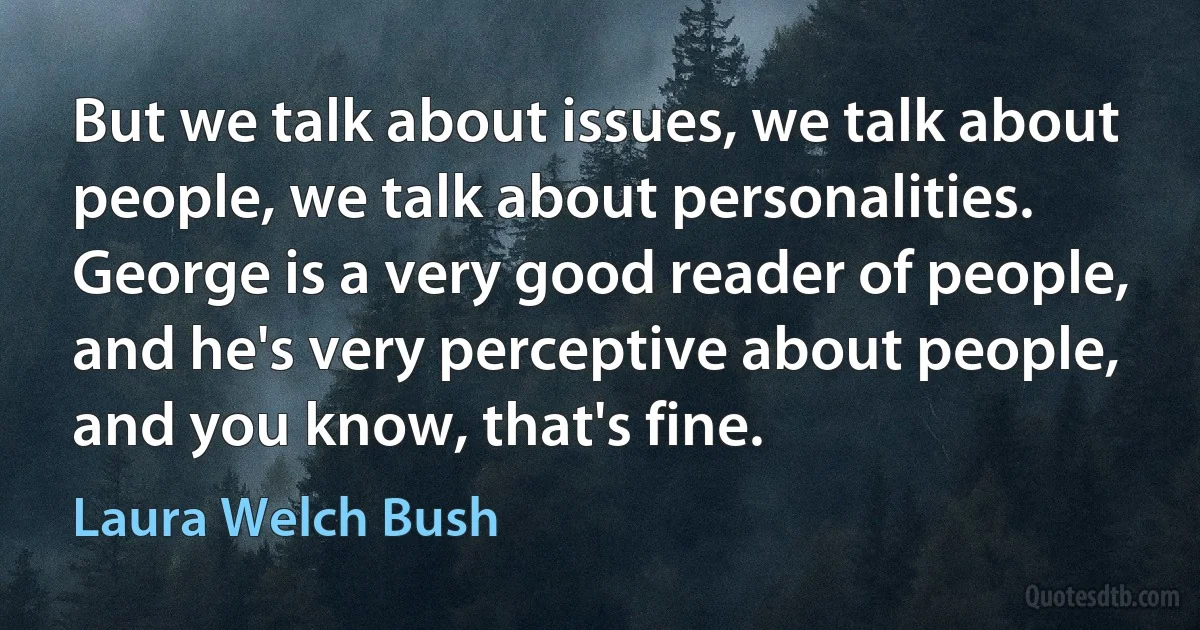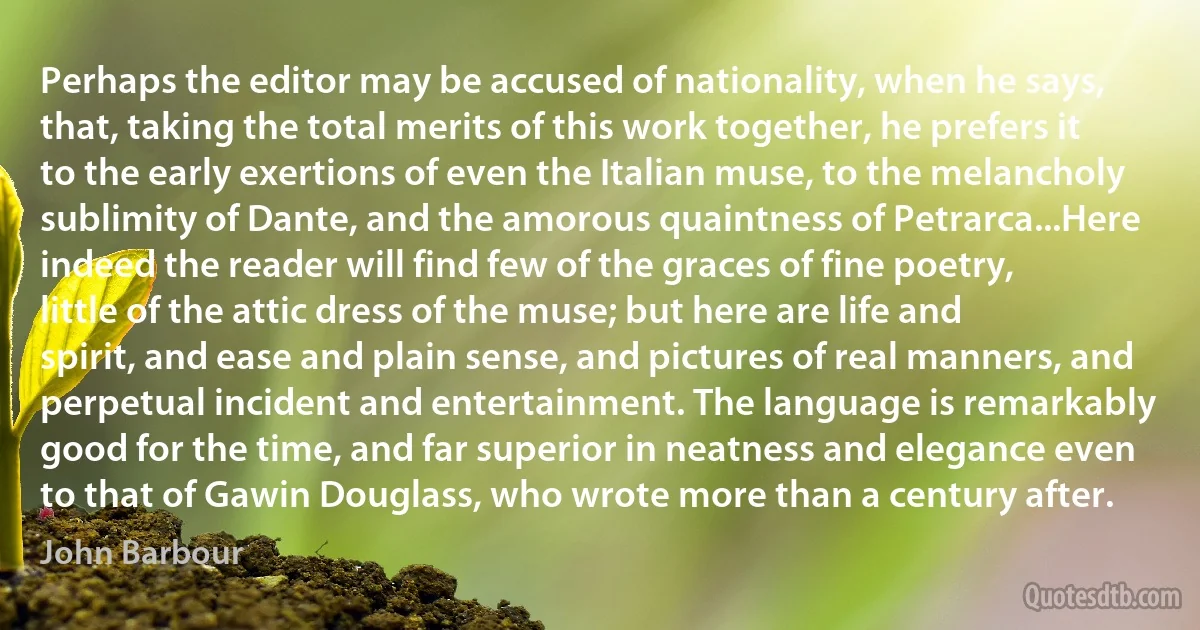Reader Quotes - page 11
The bourgeois novel is the greatest enemy of truth and honesty that was ever invented. It's a vast, sentimentalizing structure that reassures the reader, and at every point, offers the comfort of secure moral frameworks and recognizable characters. This whole notion was advanced by Mary McCarthy and many others years ago, that the main function of the novel was to carry out a kind of moral criticism of life. But the writer has no business making moral judgments or trying to set himself up as a one-man or one-woman magistrate's court. I think it's far better, as Burroughs did and I've tried to do in my small way, to tell the truth.

J. G. Ballard
Has our reader ever heard about the parallel strands of time, in two-track time? Yes, such branch stretches of time do exist, a little illegal, to be sure, and problematic, but when carrying such contraband as ours, such supernumerary, unclassifiable events, one cannot be too particular. And so, at some point in our story, we shall attempt to take such a branch turning, a siding, and shunt this illegal history into it.

Bruno Schulz
Henry of Essex's religion was the Inner Light or Moral Conscience of his own soul; such as is vouchsafed still to all souls of men;-which Inner Light shone here 'through such intellectual and other media' as there were; producing 'Phantasms,' Kircherean Visual-Spectra, according to circumstances! It is so with all men. The clearer my Inner Light may shine, through the less turbid media; the fewer Phantasms it may produce,-the gladder surely shall I be, and not the sorrier! Hast thou reflected, O serious reader, Advanced- Liberal or other, that the one end, essence, use of all religion past, present and to come, was this only: To keep that same Moral Conscience or Inner Light of ours alive and shining.

Thomas Carlyle
Why, reader, truly, if they asked thee or me, Which way we meant to vote?-were it not our likeliest answer: Neither way! I, as a Tenpound Franchiser, will receive no bribe; but also I will not vote for either of these men. Neither Rigmarole nor Dolittle shall, by furtherance of mine, go and make laws for this country. I will have no hand in such a mission. How dare I! If other men cannot be got in England, a totally other sort of men, different as light is from dark, as star-fire is from street-mud, what is the use of votings, or of Parliaments in England?

Thomas Carlyle
All old Poems, Homer's and the rest, are authentically Songs. I would say, in strictness, that all right Poems are; that whatsoever is not sung is properly no Poem, but a piece of Prose cramped into jingling lines,-to the great injury of the grammar, to the great grief of the reader, for most part! What we wants to get at is the thought the man had, if he had any: why should he twist it into jingle, if he could speak it out plainly? It is only when the heart of him is rapt into true passion of melody, and the very tones of him, according to Coleridge's remark, become musical by the greatness, depth and music of his thoughts, that we can give him right to rhyme and sing; that we call him a Poet, and listen to him as the Heroic of Speakers,-whose speech is Song.

Thomas Carlyle
I beg the reader not to go in search of messages. It is a term that I detest because it distresses me greatly, for it forces on me clothes that are not mine, which in fact belong to a human type that I distrust; the prophet, the soothsayer, the seer. I am none of these; I'm a normal man with a good memory who fell into a maelstrom and got out of it more by luck than by virtue, and who from that time on has preserved a certain curiosity about maelstroms large and small, metaphorical and actual.

Primo Levi
AT ABOUT THIS POINT the weak-hearted reader usually sits down in the road, removes his shoes and weeps that he 'is a bad linguist' or that he or she can't possibly learn all those languages. One has to divide the readers who want to be experts from those who do not, and divide, as it were, those who want to see the world from those who merely want to know WHAT PART OF IT THEY LIVE IN.

Ezra Pound
Ludwig also provides a brief, quite brilliant exposition and critique of the concept of an "authentic" self, noting that it is rooted in a male Victorian ethos and that it has been overshadowed by the more contemporary American notion of self-invention. Ludwig's beautifully written and intellectually provocative book is one of those rare works that offer fresh, profound insights, moving the reader to think probingly about his or her own life and self.

Arnold M. Ludwig
Ludwig's book is outstanding. It pulls together a mound of pertinent data, much of it new, into coherent patterns...Throughout the book the reader is offered a wealth of insights and serious questions...Ludwig's development of a Creative Achievement Scale [is] a valued contribution in its own right, allowing researchers a comprehensive objective tool for scoring subjects' degree of achievement... Ludwig has cleared up much of the confusion and opinionated muddleheadedness... that has been attached to the topic and the thinking regarding a relationship between psychopathology and creativity.

Arnold M. Ludwig
If it has been revealed to man that the Almighty made him out of the dust of the earth, and breathed into his nostrils the breath of life, it is in vain to tell a Christian that man was originally a speck of albumen, and passed through the stages of monads and monkeys, before he attained his present intellectual preeminence. If it be a received truth that the Creator has repeatedly interposed in the government of the universe and displayed his immediate agency in miraculous interpositions, it is an insult to any reader to tell him that the being slumbers on his throne and rules under a "primal arrangement in his counsels," and "by a code of laws of unbending operation."

David Brewster
When, therefore, as will be clear to those who read, the passage as a connected whole is literally impossible, whereas the outstanding part of it is not impossible but even true, the reader must endeavor to grasp the entire meaning, connecting by an intellectual process the account of what is literally impossible with the parts that are not impossible but historically true, these being interpreted allegorically in common with the part which, so far as the letter goes, did not happen at all. For our contention with regard to the whole of divine scripture is that it all has a spiritual meaning, but not all a bodily meaning; for the bodily meaning is often proved to be an impossibility.

Origen
My philosophy isn't only not conducive to misanthropy, as it might appear to a superficial reader, and as many have accused me. It essentially rules out misanthropy, it tends toward healing, to dissolving discontent and hatred. Not knee-jerk hatred but the deep-dyed hatred that unreflective people who would deny being misanthropes so cordially bear (habitually or on select occasions) toward their own kind in response to hurts they receive-as we all do, justly or not-from others. My philosophy holds nature guilty of everything, it acquits mankind completely and directs our hate, or at least our lamentations, to its matrix, to the true origin of the afflictions living creatures suffer, etc.

Giacomo Leopardi



